IUFRO Spotlight #67 – Tapping the potential of restoring disturbed tropical forests
IUFRO Spotlight #67 – Tapping the potential of restoring disturbed tropical forests
Since the 1980s most deforestation globally has occurred in tropical countries – Africa, South America and Asia. The high rate of deforestation and degradation contributes to the disappearance of 13 million hectares of tropical forests each year.
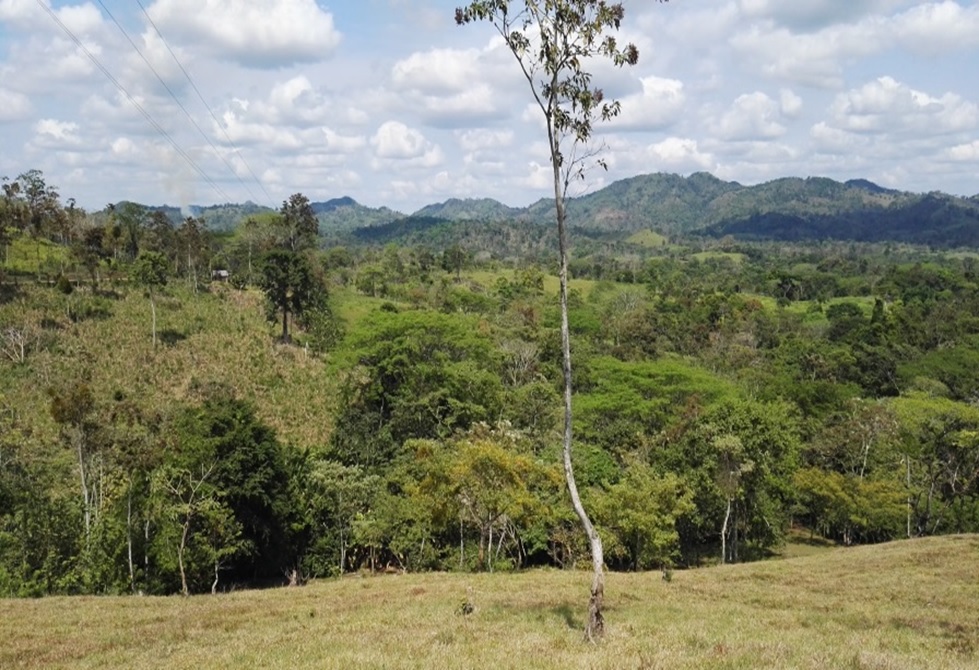
IUFRO Spotlight #66 – A forest mix may best address global change
IUFRO Spotlight #66 – A forest mix may best address global change
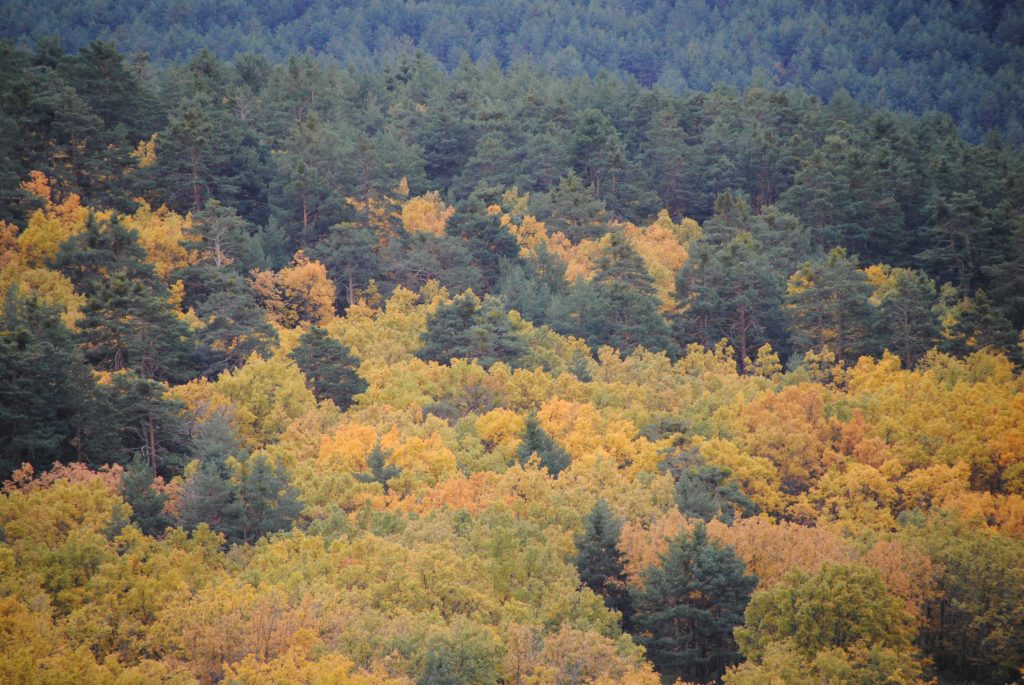
Managing a mixed forest in the context of environmental and social change is the focus of a recent publication put together by members of IUFRO Research Group 1.09.00 (Ecology and Management of Mixed Forests).
The structure, dynamics and functioning of such forests are increasingly relevant topics for researchers.
Read more…IUFRO Spotlight #65 – Tying up loose ends in gender equality in forestry
IUFRO Spotlight #65 – Tying up loose ends in gender equality in forestry
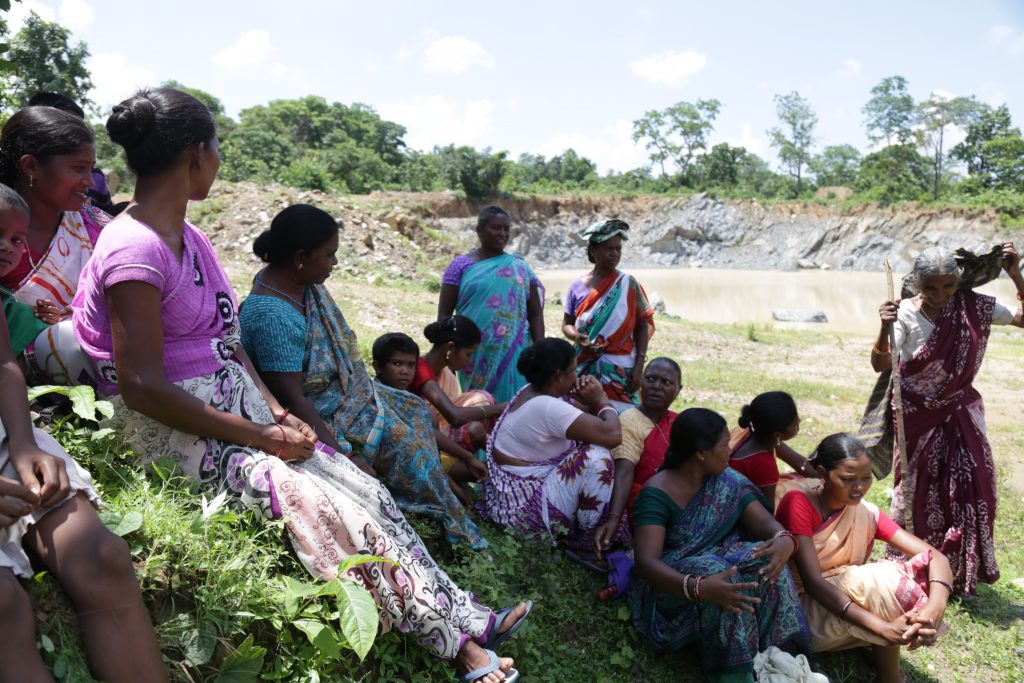
“In recent years gender equality in forestry has received a lot of attention – or lip service, anyway – but that’s not good enough. There exist a lot of loose ends at the practice and at the policy level,” said Dr. Purabi Bose, author, social environmental scientist, filmmaker and deputy coordinator of the IUFRO Gender and Forestry Research Group.
Read more…Burn notice: Fire’s reality in the 21st century
Burn notice: Fire’s reality in the 21st century
NOTE: This text is reblogged without any changes from an article written by Hugh Biggar (Landscape News) about IUFRO Occasional Paper 32 – Global Fire Challenges in a Warming World, at https://news.globallandscapesforum.org/34468/burn-notice-fires-reality-in-the-21st-century/.
_________________________
As a result of the extreme weather driven by climate change, fires are an increasingly common fact of life globally – one that calls for new approaches to living with fire, according to a report developed by a multinational team of experts.
“Data shows a trend of increasing frequency and intensity of uncontrolled fires adversely affecting biodiversity, ecological systems, human well-being and livelihood, and national economies,” says the report from the International Union of Forest Research Organizations (IUFRO) and the World Bank’s Program on Forests (PROFOR). Read more…
Congress Spotlight #64: Latest in forest science to be showcased in Brazil
Latest in forest science to be showcased in Brazil
IUFRO Spotlight issues up to September 2019 will primarily focus on the XXV IUFRO World Congress that will take place on 29 September – 5 October 2019 in Curitiba, Brazil.
Individual Congress sessions will be highlighted in order to draw attention to the broader Congress themes, the wide variety of topics that will be addressed at the Congress and their importance on a regional and global scale.
Visit the Congress website at http://iufro2019.com/ or https://www.iufro.org/events/congresses/2019/.
For the first Spotlight in this series we have invited Dr. Jerry Vanclay, Chair of the IUFRO World Congress Scientific Committee, to offer a sneak peak of the attractive and comprehensive technical program and talk about his personal expectations of the Congress.
————————–
How Do Professionals Find the Science They Need?
The Society of American Foresters held seven small group dialogues throughout the United States. One of the questions discussed was how natural resources professionals—resource managers and policy-makers—find the science they need to do their jobs. 66 people attended the dialogues. Over half represented non-governmental organizations and public agencies. Elected officials, university faculty and industry practitioners were also represented.
Six Key Findings Emerged

Figure 1. Word cloud of the 68 coded and indexed major points that emerged from all seven dialogues.
On-line searches are the most popular approach. Google Scholar and ResearchGate are the favored applications. Google Scholar is a web-crawler, indexing content across most peer-reviewed on-line academic journals and many other technical documents. ResearchGate is a networking site for researchers, who upload publications to share, seek and provide answers to questions, and search for potential collaborators. Read more…
Considering the Human Dimension when Restoring Forest Landscapes
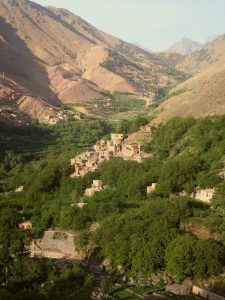
Integration of Western and Traditional knowledge in FLR planning and implementation can result in more comprehensive, locally grounded, and socially and culturally acceptable restoration projects. This scene from the Ilmil Valley in the Atlas Mountains (Morocco) depicts a mosaic of agricultural and forest management practices used by farmers to support their livelihoods and food security while conserving forest biodiversity. Photo: John Parrotta
Much has been written about forest landscape restoration (FLR) from a silvicultural or ecological perspective: techniques, approaches, methods, case studies, have all tended to focus on the practical and technical tools to implement forest restoration. However, relatively little attention has been given to human dimensions.
In fact, there is limited guidance on how to go about restoring forest landscapes when it comes to integrating both ecological and human dimensions of FLR. The need for this integration was the main motivation for the newly published book entitled Forest Landscape Restoration: Integrated Approaches to Support Effective Implementation, which was edited by Stephanie Mansourian (Consultant, member of IUFRO Task Force Forest Adaptation and Restoration under Global Change, and Research Associate, University of Geneva, Switzerland), and John Parrotta (US Forest Service and IUFRO Vice-President). Read more…
Spotlight #63 – What’s in the future for Non-Timber Forest Products?
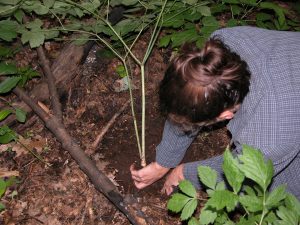
The roots of many forest plants are harvested for their medicinal values. Changes in climate and lack of management may imperil their long-term sustainability and the people who depend on them. Photo credit: James Chamberlain, USDA Forest Service.
The Forest Service of the U.S. Department of Agriculture has recently published “…the most comprehensive assessment covering the production and management of non-timber forest products (NTFPs) and resources – as well as the cultural, social, economic, and policy dynamics that affect them.” The assessment covers every state in the U.S.
But the findings can be utilized far beyond the U.S. borders. Read more…
Ancient Woodlands and Trees: A Guide for Landscape Planners and Forest Managers
Ancient woodlands, trees and forests are at the very core of many global landscapes. However, understanding the resource which these living landscapes provide requires genuinely multi-disciplinary research.
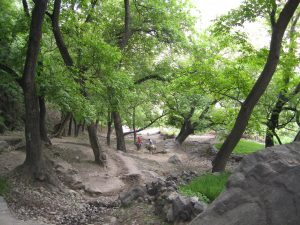 Consequently, the book “Ancient Woodlands and Trees: A Guide for Landscape Planners and Forest Managers”, which was recently published as IUFRO World Series 37, has gathered contributions by leading experts in ecology, history, heritage, and management of ancient trees, ancient woodlands and forests. Taking trees, woods and forests as eco-cultural resources, the authors explore ecology and nature, history, tradition and heritage, and the evidence base of archaeology, literature, and archives. Read more…
Consequently, the book “Ancient Woodlands and Trees: A Guide for Landscape Planners and Forest Managers”, which was recently published as IUFRO World Series 37, has gathered contributions by leading experts in ecology, history, heritage, and management of ancient trees, ancient woodlands and forests. Taking trees, woods and forests as eco-cultural resources, the authors explore ecology and nature, history, tradition and heritage, and the evidence base of archaeology, literature, and archives. Read more…
Spotlight #62 – How and why criteria and indicators have changed forest management since the Rio Summit
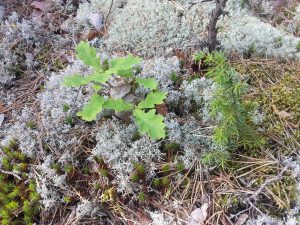
Regeneration is also covered by indicators for SFM. Photo: S. Linser.
Sparked in part by the Rio Earth Summit of 1992, the use of criteria and indicators (C&I) for sustainable forest management (SFM) has become an ever more present aspect of forest management.
Since that ’92 summit, “the focus of academic attention has been mainly on global forest governance with a research gap regarding regional (or international) forest related processes,” said Dr. Stefanie Linser of the European Forest Institute, who is also co-ordinator of IUFRO Working Party 9.01.05 on research and development of indicators for SFM. Read more…
